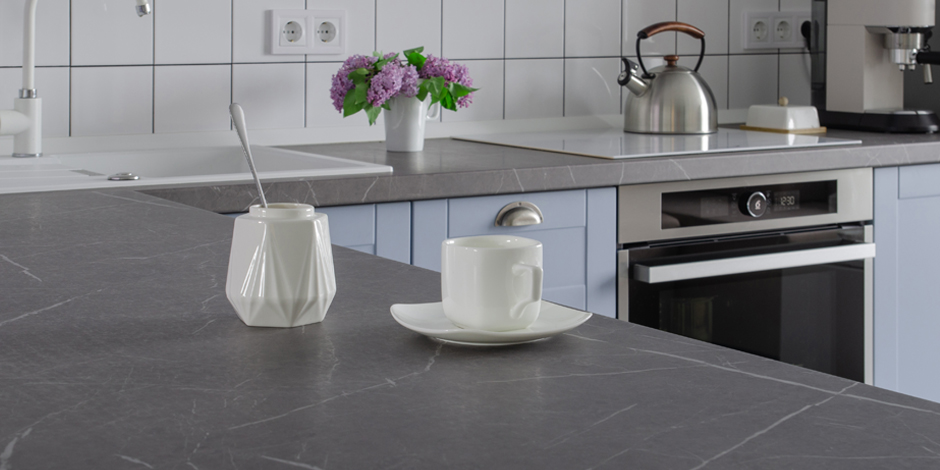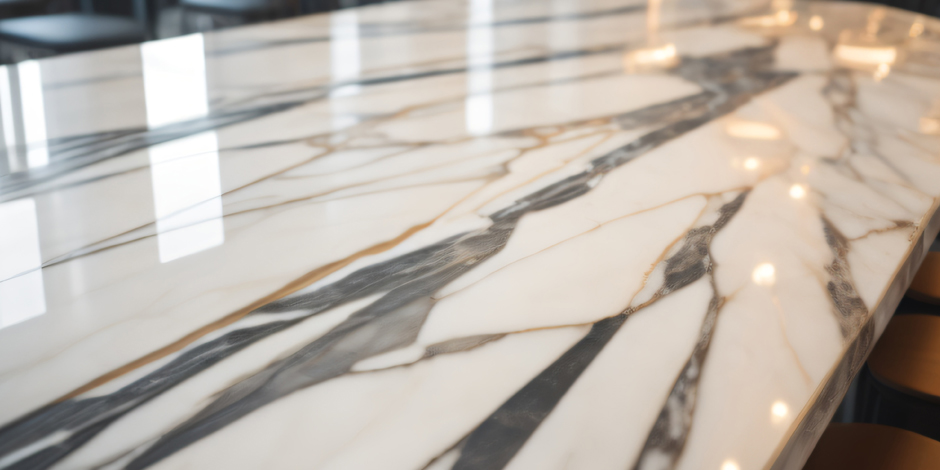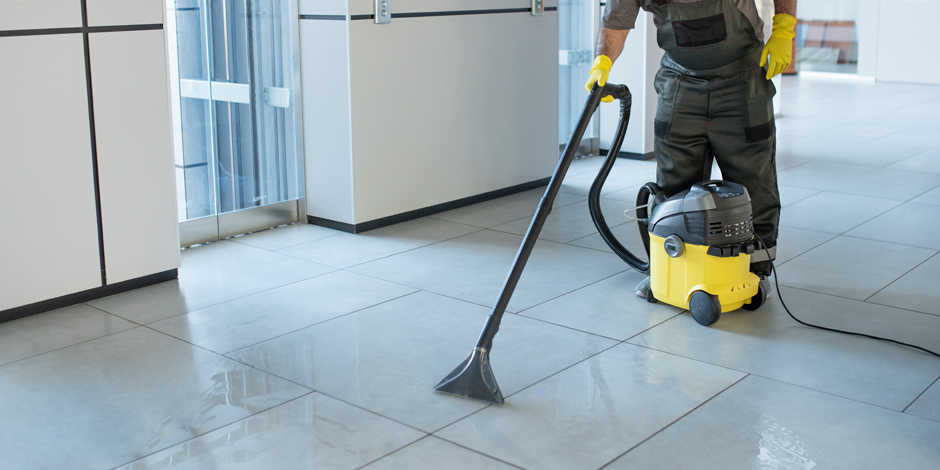However, over time, marble countertops may lose their original gloss and luster. Marble countertops are a timeless and elegant complement to any kitchen or bathroom. The polishing technique may restore the beauty and luster of marble countertops, regardless of whether they are cultured, dull, or sharpened. In this blog, we’ll examine the craft of Polish Cultured Honed Marble Countertops and offer step-by-step instructions for getting amazing results. We’ll also introduce Tri-State Marble Countertop Care Service, a reputable business that provides professional marble countertop maintenance in Philadelphia, Montgomery County, and Chester County.
How to Polish Cultured Marble Countertops:
actual marble chips and resins are combined to create cultured marble surfaces, which provide a dependable and affordable alternative to actual marble. Cultured marble countertops must be polished with care and using the proper methods to improve their appearance. Follow these steps if you’re polishing cultured marble countertops by yourself:
Step 1: Clean the Countertops
Use a moderate, pH-balanced solution or a professional marble cleaner to clean the cultured marble counters before polishing. Make sure that there are no residues, dust, or grime on the surface.
Step 2: Choose the Right Polish
Choose a premium marble polish that is appropriate for cultured marble countertops. To apply the product correctly, follow the manufacturer’s instructions.
Step 3: Apply the Polish
Use a delicate cloth to apply a tiny amount of the polishing solution evenly throughout the cultured marble surface. Work in manageable parts to provide even coverage.
Step 4: Polish the Surface
Start cleaning the cultured marble surfaces in circular motions with a soft cloth or a low-speed buffer. To enhance the surface’s inherent brilliance, gently buff it.
Step 5: Wipe Off Excess Polish
After polishing, remove any extra polish from the cultured marble countertops with a clean, soft cloth.

How to Polish Dull Marble Countertops:
Countertops made of dull marble have lost their initial sheen and may appear unappealing. Marble countertops that have lost their luster can be given new life by polishing them. Use these steps to polish worn-out marble surfaces if you’re doing it yourself:
Step 1: Clean the Countertops
Start by utilizing a mild, pH-balanced cleaner or a professional marble cleaner to clean the dull marble countertops. Clean the surface of any debris, stains, or leftover materials.
Step 2: Choose the Right Polish
Choose a premium marble polish that can revive the shine of worn-out surfaces. Make sure the polish is intended especially for use on marble countertops.
Step 3: Apply the Polish
Use a delicate cloth to uniformly sprinkle a tiny amount of the polishing product onto the dull marble surface. Work in manageable chunks to guarantee thorough coverage.
Step 4: Polish the Surface
Polish the drab marble surfaces gently in a circular motion with a soft cloth or a low-speed buffer. Once the shine starts to return to the surface, keep polishing.
Step 5: Wipe Off Excess Polish
After polishing, remove any extra polish from the marble surfaces using a clean, soft cloth.
How to Polish Honed Marble Countertops:
Compared to polished marble surfaces, honed marble countertops have a matte, non-reflective appearance that can look dreary. To attain the necessary sheen, particular techniques must be used when polishing countertops made of honed marble. Observe these steps if you’re polishing honed marble surfaces by yourself:
Step 1: Clean the Countertops
Start by using a mild, pH-balanced cleaner or a professional marble cleaner to clean the honed marble countertops. Make sure that there are no residues, dust, or grime on the surface.
Step 2: Choose the Right Polish
For honed marble countertops, choose a premium marble polish. Look for a polish that is intended to improve the look of honed surfaces.
Step 3: Apply the Polish
Use a delicate cloth to uniformly spread a tiny amount of the polishing product onto the honed marble surface. Work in manageable parts to provide even coverage.
Step 4: Polish the Surface
The countertops made of honed marble should be carefully polished in circular motions using a soft cloth or a low-speed buffer. To get the desired sheen, polish slowly and consistently.
Step 5: Wipe Off Excess Polish
After polishing, remove any extra polish from the honed marble countertops with a clean, soft cloth.

Expert Tips for Polishing Marble Countertops:
- Test in a Small Area: Perform a patch test in a Covered Area prior to polishing the entire countertop to make sure the polish is suitable and yields the desired results.
- Use Soft Cloths: To avoid harming marble countertops, choose soft, non-abrasive towels when polishing them.
- Avoid Acidic Substances: Marble surfaces can be harmed by acidic things like vinegar or lemon juice. Use them away from your countertops.
- Regular Maintenance: Use coasters for drinks, clean up spills right away, and steer clear of dragging heavy objects across your marble counters to keep them looking their best.
Introducing Tri-State Marble Countertop Care Service
Philadelphia’s Tri-State Marble Countertop Care Service is a recognized business with a focus on marble countertop maintenance. Our knowledgeable specialists have years of expertise polishing different kinds of marble surfaces.
Why Choose Tri-State Marble Countertop Care Service?
- Expertise and Experience: Our staff has the experience and expertise to handle various marble countertop varieties while giving each surface the best possible care.
- Advanced Techniques: To produce outstanding outcomes, we make use of cutting-edge tools and premium goods.
- Customized Solutions: To ensure your satisfaction, we adjust our services to match your unique needs and preferences.
- Outstanding Customer Service: At Tri-State Marble Countertop Care Service, we prioritize client happiness and work hard to go above and beyond.
Cultured, worn-out, and sharpened marble surfaces can regain some of their lost luster and beauty by being polished. For the best results, each type of marble countertop demands certain methods and close attention to detail.
It takes talent and knowledge to polish cultured marble, add shine to worn-out surfaces, or improve the appearance of honed countertops.





 Content Writing
Content Writing Video Marketing
Video Marketing Graphic Design
Graphic Design Lead Magnet Creation
Lead Magnet Creation Content Marketing
Content Marketing